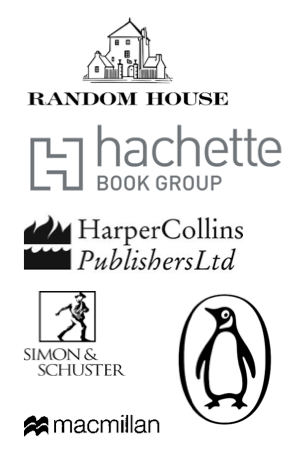Why your publisher won’t edit your manuscript — and what to do about it

I’ve now written or edited more than 25 books published by traditional or hybrid publishers. I know what your publisher is looking for, and what they will and won’t do for you. So it’s time for some straight talk about that.
Publishers in 2021 won’t generally edit your book. They are looking for a publishable manuscript. Even if your hybrid publisher offers “developmental editing,” you’re unlikely to get much handholding.
Of the books I’ve handed in to publishers, less than a handful got detailed line edits. None got structural advice. Here, for example, are all the editorial comments I heard on the first books I handed in to traditional publishers (and yes, these represent a sum total of one comment per book):
Add more international examples.
Cut 10,000 words.
Add something about the particular issues that women face.
That’s it. I turned in 60,000 or 70,000 words and got back one comment per book. And this was on books with six-figure advances.
Why is your publisher like this?
They’ve cut back the staff at your publisher. As a result, your editor is looking to answer one question: Is this publishable? And that editor is trying to get to that publishable manuscript
When the editor says, “We expect a publishable manuscript,” what they really mean is, “It’s not our job to hold your hand through the writing process.”
As a result, the publisher’s editor will read the manuscript and respond in one of the following ways:
- This is publishable, no changes needed.
- This is excellent, here are a few little suggestions.
- This has a big flaw (e.g., too long, too many asides, repetition, not enough advice, not enough case studies). Fix it.
- This is not publishable. It has the following problems: xxx, xxx, and xxx. Get an editor to help you.
What this means for you and your manuscript
Your editor is not going to look at bits and pieces of what you are writing and give you much feedback.
They may or may not help you with structure.
And they’re not going to go through every section and paragraph asking “How could this be better?”
That means it is up to you to deliver a complete, publishable manuscript.
You could try and do that on your own. If you’re a really good writer, that might work. If this is your first book, it probably won’t.
You could ask a friend or two to read it. They’re unlikely to have the skill, experience, or attention to detail to stick with the project and help you guide it. And if you ask more than one friend, you’ll get contradictory advice.
Or, you could hire a professional developmental editor.
About developmental editors
A developmental editor is going to cost you $5,000 to $30,000, depending on how much help you need. (Anyone who charges less than that is not actually skilled enough to help — professional editors get paid based on their experience.)
The professional editor will help you with style.
They will help you with the table of contents.
They will look at work in progress and give you feedback. They will coach you.
They will go through the writing line-by-line and tell you where it is credible, repetitive, in the wrong order, written confusingly, or brilliant.
They will stay with you through multiple manuscript passes (if you pay for that).
Isn’t that the publisher’s job?
Not in 2021, it isn’t.
Yes, this costs money. But your book is going into print with your name on it. And the publisher isn’t going to fix it for you.
If you don’t care what the result is going to read like, why are you going through this in the first place?
That was my experience writing the first of two For Dummies books. Yes, you need to submit an outline and you’ll get plenty of feedback on that. Other than that, you have to submit a chapter to make sure that the text is dummified. (Note to self: The word conflate gets nixed. Beyond that, you’re absolutely right, Josh.
Many authors skimp on this expense. The book doesn’t sell well. This, in turn, gives the publisher less of an incentive to invest in authors. The vicious cycle continues.
The upside: If you can reliably produce a book that needs few edits, then their interest in having you write more books is considerable. You’ve proven your mettle.
Traditional publishers are increasingly becoming printers. It’s no wonder that more and more are eschewing them.
So why should I bother with traditional publishing? If I have to do all the work, I might as well have all the control.
These are the benefits of traditional publishing:
1. They pay you an advance and pay for other services like covers, copy editing, and printing.
2. They have broad distribution power, which can get you into bookstores and sell foreign rights effectively.
3. A publisher imprint carries more clout for your reputation.
These are significant, even if you have to mostly pay for your own editing.